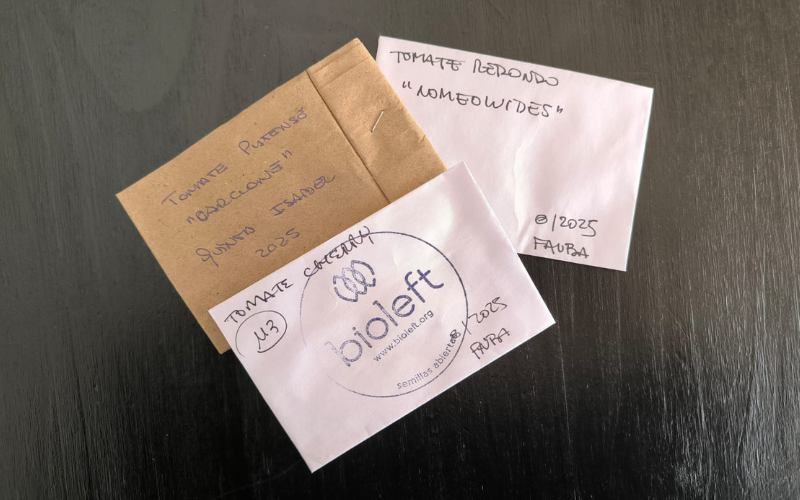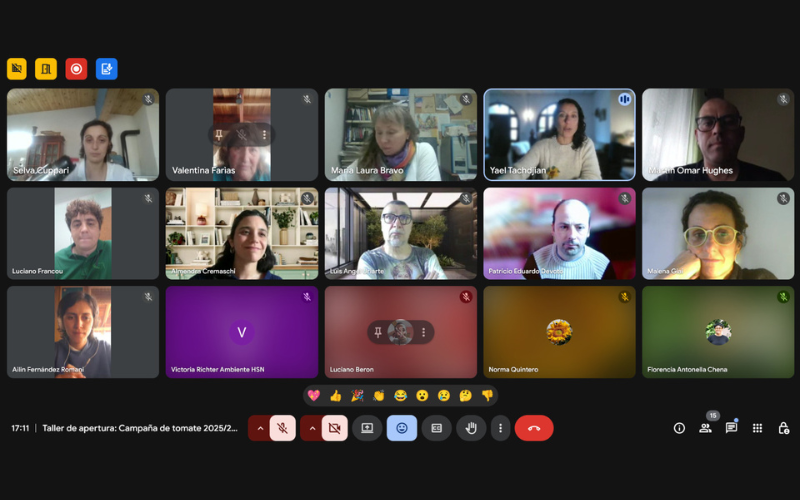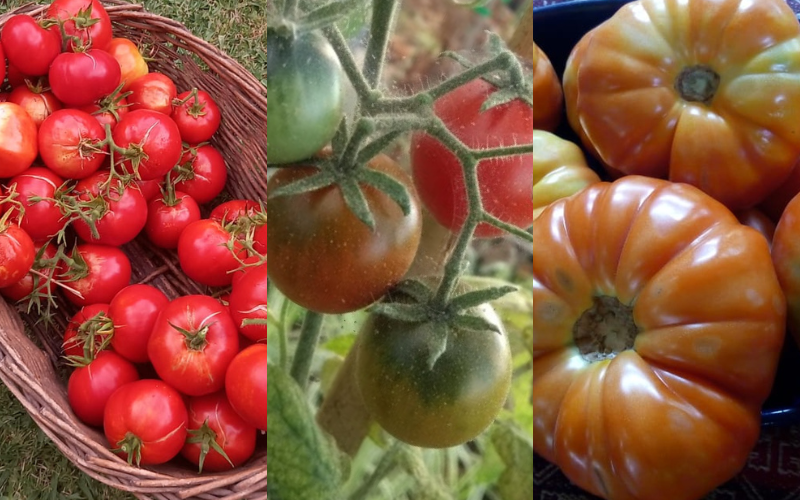
Bioleft launched the 2025/2026 tomato campaign with a virtual workshop that brought together evaluators from more than 25 locations across the country. The proposal, based on open science and citizen science, reinforces collaborative recording and the circulation of knowledge to make better decisions on seed selection and multiplication.
This year, the campaign will be carried out in collaboration with a group of more than 30 evaluators from different regions of the country, mainly made up of those who were able to carry out the evaluation in previous campaigns. In this way, Bioleft seeks to consolidate a distributed and highly trained evaluation network.

On this occasion, three main varieties will be evaluated: “No me olvides / Juan Domingo Perón / 56” (already evaluated in previous campaigns), 113 (large cherry) and Carcione (Platense tomato). In addition, Ronita (pear) will be evaluated in a territorial experiment using seeds shared by producers in the network.
To this end, systematization tools have been developed to facilitate the collection and recording of data in a simple and robust manner, as well as training tools to help build technical and observation skills among evaluators. The latter include an information kit (on sowing, transplanting, pruning, irrigation, and pest management), video tutorials (including seed extraction and conservation), and a report that compiles all the lessons learned and knowledge obtained from the 2024/2025 experience, which can be used to support the development of this new cycle. In addition, a WhatsApp group will be incorporated into this campaign to provide daily support, and virtual mateadas will be organized for exchange and technical support.

As a new feature, the team presented a prototype platform, which is a digital tool that will facilitate the registration and exchange of seeds. It was also mentioned that a component on culinary practices and nutritional value will be added to this campaign. Towards the end of the cycle, a survey of tomato preparations and uses will be proposed in order to systematize this knowledge, which completes the seed-cultivation/production-consumption cycle.
The experiences shared highlighted the diversity of climates and spaces: from urban balconies to school greenhouses and community gardens; from late frosts in the south to hot terraces in the center of the country. Good practices were shared: differentiating varieties and dates, taking photos to facilitate record keeping, printing field sheets, caring for delicate transplants, associating with basil and copete for pest management, raising pots on terraces to avoid overheating, and prioritizing the recovery of own seeds to sustain the campaign year after year.
The activity reaffirmed the meaning of participatory improvement: integrating the knowledge of those who produce, research, teach, and consume to select seeds that are tastier, more resilient, and adapted to agroecological management.